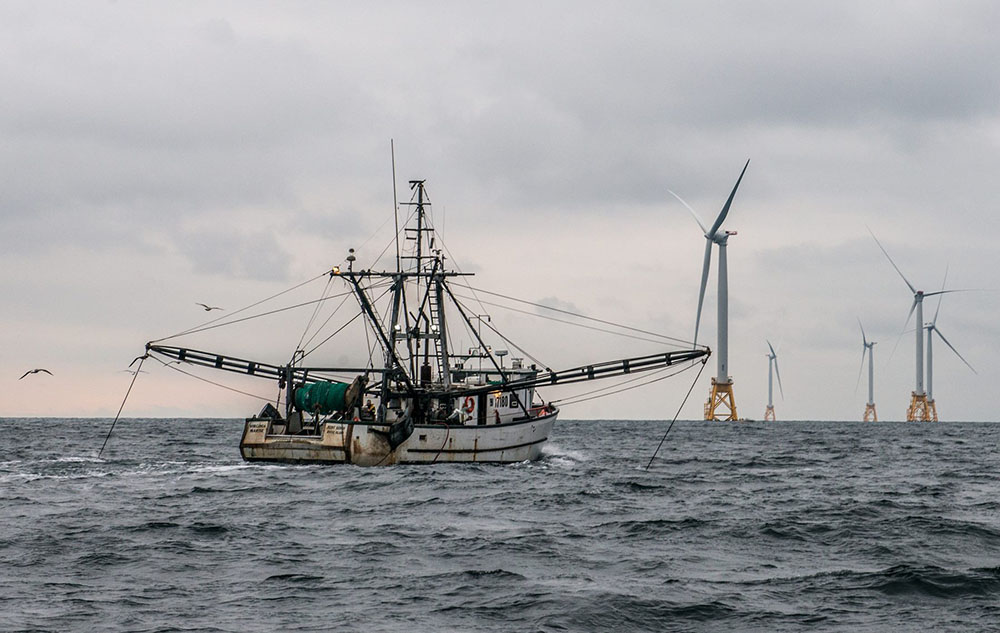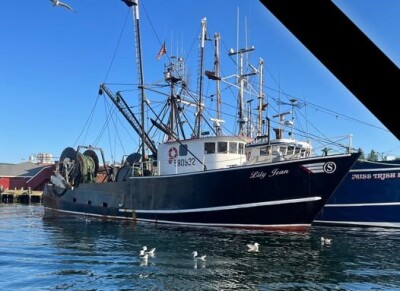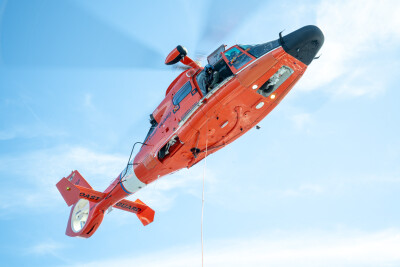The federal Bureau of Ocean Energy Management is working with coastal states to come up with plans for potentially compensating fishermen for lost fishing grounds and other negative effects of developing offshore wind turbine arrays.
But details are murky, according to one fisheries advocacy group that says fishermen should already be involved in that planning.
Reuters reported July 27 that officials in the federal Bureau of Ocean Energy Management who are driving offshore wind planning are talking about compensatory payments for displaced fishermen.
That was news to Annie Hawkins, executive director of the Responsible Offshore Development Alliance, a coalition of fishing groups and coastal communities.
The only direct knowledge her group’s executive committee got was in an informal conference call with BOEM administrator Amanda Lefton and her staff, Hawkins said Wednesday. Lefton mentioned that her agency would be working with state government officials to explore “compensatory mitigation” for fishermen forced out of work by wind farm development, and would begin scheduling meetings for that effort.
It also came up during a BOEM presentation to the Mid-Atlantic Fishery Management Council in June, said Hawkins. But Hawkins says that process is backward in not including fishermen at the onset of discussions.
The funding method needs to be publicly discussed too, she said.
“It’s an impact fee, it’s not mitigation,” said Hawkins. The funding should be calculated early and could be incorporated into wind developers’ power purchase agreements with states, “not doing this at the 11th hour, she said.
It must be a regional approach, not project-by-project, and compensation should come after regulators and developers have done everything possible to minimize negative impacts, Hawkins added.
“We want that at the end, after we’ve done everything possible to eliminate the need,” she said. That must include goals for minimizing disruption to the U.S. food supply, Hawkins and other industry advocates say.
They foresee potential losses across fisheries, from the high-priced products like scallops to routine commodities like surf clams that go into canned chowders.
In recent online BOEM scoping meetings on the Empire Wind project off New York, longtime clam industry spokesman David Wallace emphasized the fleet is at risk of losing large parts of its traditional grounds.
“If there are no marginal areas to fish, we go out of business,” said Wallace. The government and developers could step in with dedicated funding to compensate for losses, assessed on a per-megawatt basis to pay reimbursement for gear damage and loss of fishing grounds, he said.
New Jersey surf clam companies have been sharing some of their proprietary data and hired consultants to analyze their fleets’ fishing patterns in the planned Atlantic Shores and Ocean Wind project sites off Long Beach Island and Atlantic City.
The developers have been using feedback from fishermen to consider different layouts and spacing for the turbine arrays, according to BOEM and developers.
NMFS experts have been conducting their own analyses of fisheries and their historic catches within New York Bight wind areas. For the Atlantic Shores lease array, an accounting by NMFS for 12 years of fishing effort there shows surf clams and scallops topping the list of potentially affected fisheries by value.
In all, boats fishing the area brought back 25.6 million pounds in landings during that period, with dockside value of $17.4 million.
One danger foreseen by clammers is a likelihood of local overfishing when their hydraulic dredge boats can no longer access the lease areas during turbine construction and operation. That could threaten vessels based homeported at Atlantic City that now frequently harvest from the Atlantic Shores area.







